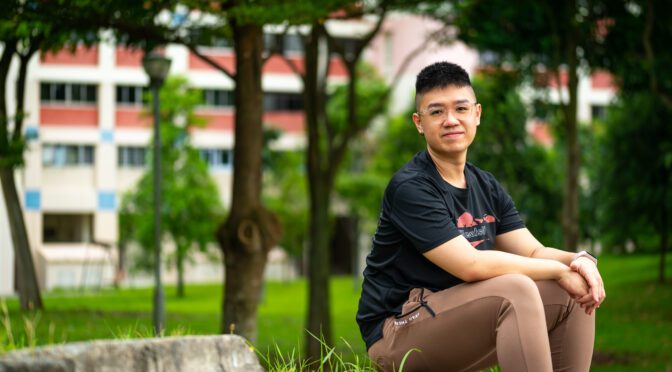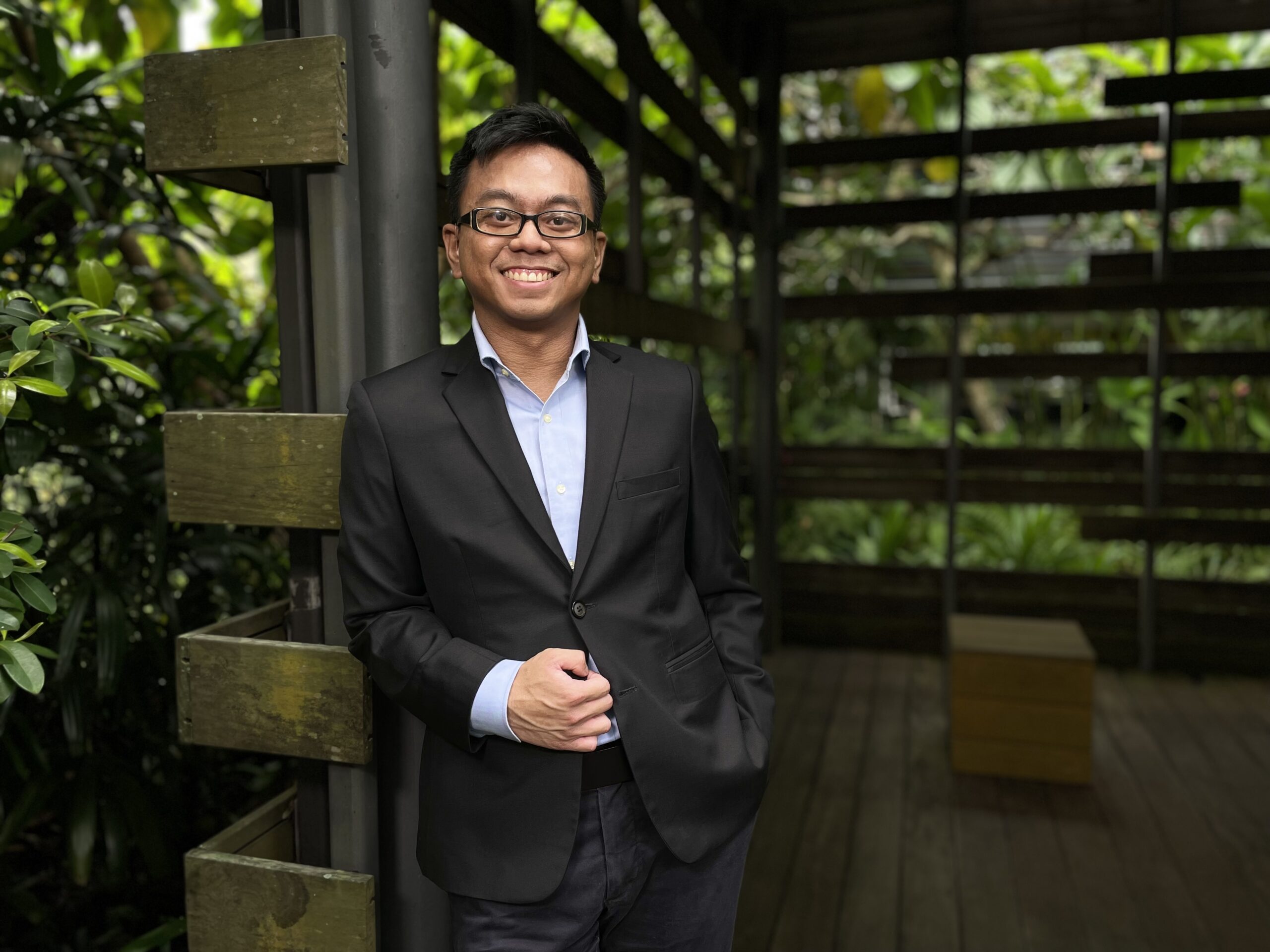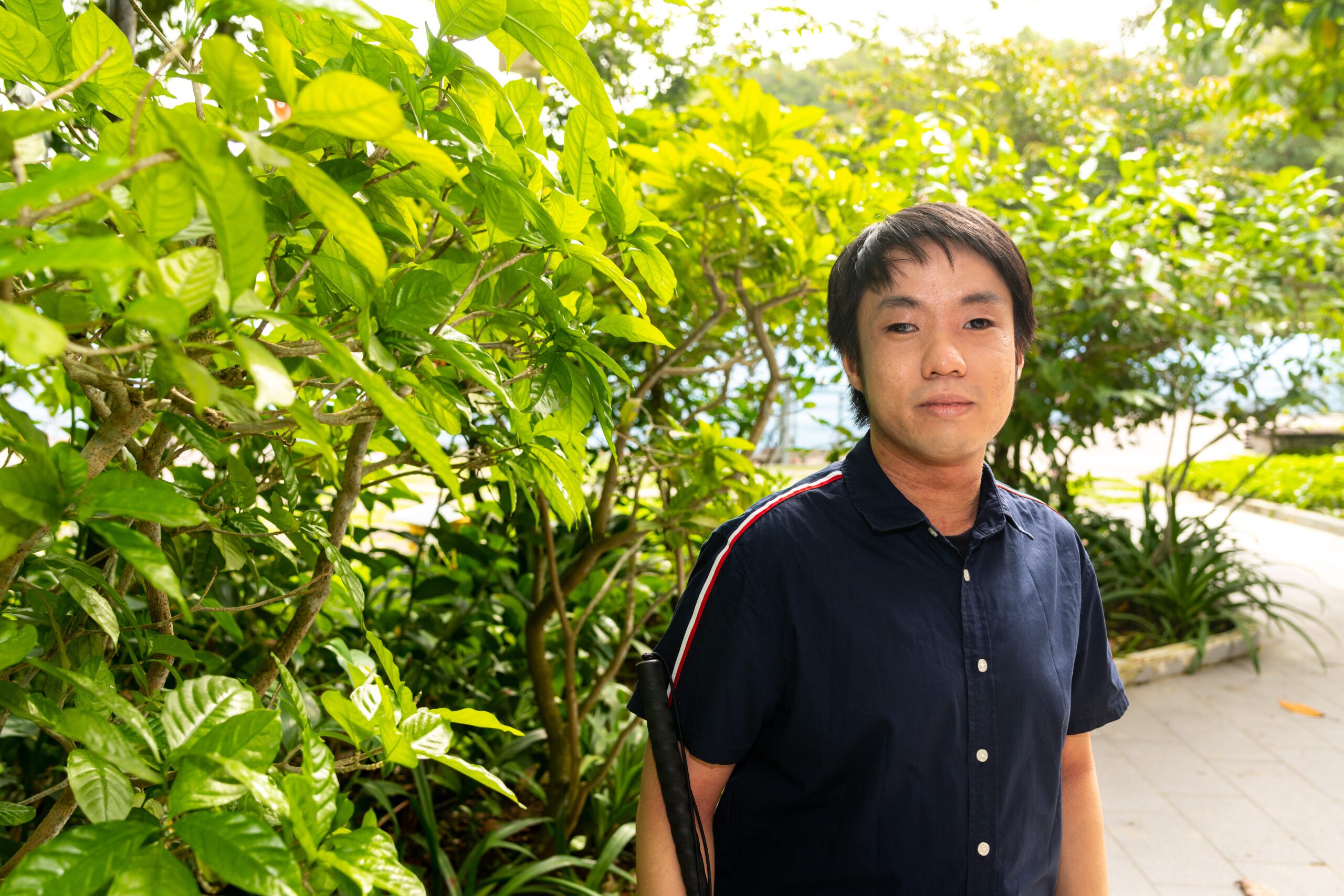Around the same time, Singapore saw the commencement of Guide Dogs Singapore and introduced the country’s first full-time orientation and mobility specialist, who trains people with low vision like me to lead independent lives safely. I was offered by the organisation a service dog, but I rejected its offer, much to the surprise of my friends. ‘You turned down a free adorable companion? You must be out of your mind!’ What people don’t understand is that a service dog is not a pet; it’s a working dog. Of course, a relationship is bound to blossom at some point between human and beast. But no one should ever get a service animal if the aim is to cure loneliness. After much mulling, I realised I didn’t need one: I’m a homebody who leads a mostly sedentary lifestyle. Dogs, be they a service dog or a pet, need to be walked every day. Guide dogs especially need to be exposed to regular stimuli, and new routines must be devised for them so they do not get complacent. I knew I had not the discipline to do so. And given my aspiration to be a public speaker, and knowing how woeful it is to get a service animal onboard a plane — even today, the general public is still ill-informed about service animals — it just wasn’t right for me.
So, I had all the tools I needed at my disposal. I kept my nose to the grindstone. Thankfully, the marketing course turned out to be everything I had envisioned it would be. Even modules that my peers found dreadfully boring I thought were interesting. Because there was a purpose: we could apply the knowledge we learnt to real-life situations. There were of course challenges that were inherent to me as I’m disabled. I had to put aside my pride (hey, once bitten, twice shy: walking into pillars in front of total strangers you’re trying to impress does that to you) and learn that it was a partnership. I had to be willing to work with the people who were there to help me, from trainers from iC2 PrepHouse to the lecturers. I needed to know when to ask for help. In this way, I managed to complete my studies and even earn a no-bond scholarship sponsored by Asia Pacific Brewery Scholarship, which just nicely covered the expenses for my four-year degree in Information Systems. Those university years were excruciating: I realised I had no interest in the technical aspects such as coding. I didn’t want to be a software developer or a data scientist. But in life, no experience is ever wasted. Today, my degree informs my work as a digital accessibility advocate and consultant.
My message to the world
As much as glaucoma has taken from me — my sight and the enjoyment of many things — it has also given me one thing: perspective. My girlfriend and I both believe that I would have turned out to be a very different person if not for this condition. I probably would have been a gamer who spends way too much time slouched in his chair. You may label me as a victim of circumstances, and that would not be inaccurate. However, if I let that define me, I probably wouldn’t go very far in life. The world is unfathomably big, and there are people with problems as big or bigger than mine. I can wallow in self-pity, and it’s okay to do that, but what do I do afterwards? I am a huge believer of accepting what you cannot change, and change what you cannot accept. I accept my condition, but I want to change perceptions on disabilities.


